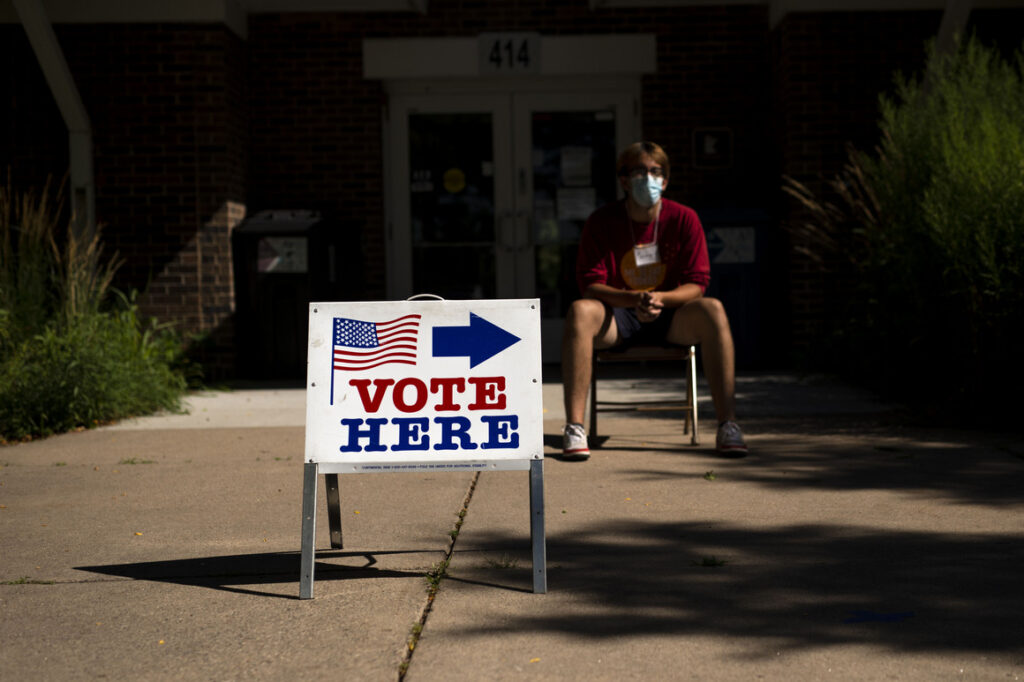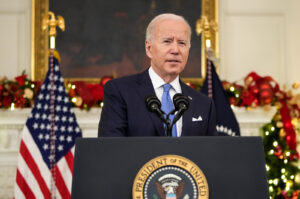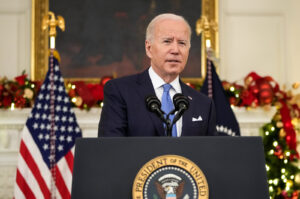The United States Presidential Election is Under Cyberattack

Source: Reuters
Historically, the military capabilities of great powers like the United States have been superior to those of developing countries. Consequently, states have invested in other ways to strengthen their defense and war-fighting capacities. The Baltic Journal of Law & Politics reveals that now more than ever, states are utilizing technology to manage or interfere with official government business, economics, and the private sector.
Access to the internet and social media allows states to more easily hack into other states’ private information and as a result, wreak havoc. This method of attack has been notably utilized by Russia against other states like the US or Estonia to further their political agenda.
Today, Russia’s frequent cybersecurity attacks on the US and Europe have become a new economic, political, and military weapon that creates a security dilemma for the rest of the world. It is probable that Russia carries out cybersecurity attacks with the intention of increasing its own security because it feels threatened by or does not approve of US and European militaries, economies, or politics. Western superiority causes Russia to feel that they must hurt other countries, specifically in the form of cybersecurity attacks, to boost its standing and security. However, this tactic may lead to a decrease in Russia’s security because other states may feel threatened and consider taking action against it.
This article will emphasize the threat at hand and discuss the recent finding by the US government that Russia is attempting to hack the 2020 US presidential election.
What are Cybersecurity Attacks?
While attacks on cybersecurity vary in their execution, most countries agree that they all involve “computer sabotage by hackers acting on behalf of private interests or governments”. These attacks can range from a single hacker stealing financial information, to foreign governments launching elaborate cyber espionage.
Cybersecurity attacks are a relatively new phenomenon and oftentimes, governments struggle to define them. Countries vary in how they view their own vulnerabilities, thus affecting how they define cybersecurity attacks. Advanced industrial democracies, with systems deeply dependent on data networking, understand that cybersecurity attacks can damage a society. In his World Affairs article entitled “SHADOW WARS: Debating Cyber ‘Disarmament’”, Tom Gjelten argues thatless developed and less networked states view this kind of attack as associated more with politics rather than technology.
In general, most states agree that cybersecurity attacks consist of hacking, the stealing of private information, a sort of sabotage, espionage, and the undermining of the authority and power of an established system or institution. Cybersecurity attacks also involve the direct electronic interference with civilian and foreign military targets with the intent to inflict damage.
The 2016 US Presidential Election
As a global leader in the production of intellectual property, America’s private and public institutions have become primary targets for cyber criminals across the globe. In 2018, the US government found that at least 30 or more countries, including Russia, China, Iran, Israel and France have developed “aggressive computer-warfare programs” in order to become strong powers in virtual combat.
The cybersecurity attack on the 2016 US presidential election demonstrates how a country can employ this aggressive tactic to become a greater power. US intelligence agencies have found that hackers working on behalf of the Russian government attacked American citizens and institutions by leaking private information and potentially choosing the winner of the election. Victims included political targets like the Democratic National Committee, the Republican National Committee, civil society groups, and key Democrat and Republican leaders.
Notable figures that were attacked by Russian hackers in 2016 include Hillary Clinton and her campaign chairman, John Podesta. Many of Clinton’s and Podesta’s private emails were leaked, tarnishing their image in the eyes of Americans and potentially ruining Clinton’s chances of winning the election. The Russian interference in the election may also have been a deliberate Russian attempt to subvert American democracy by choosing the winner of the presidential election, Donald Trump, whose more radical views align with Vladimir Putin.
The Attack on the 2020 Presidential Election

Source: Politico
In 2020, history appears to be repeating itself, as evidence reveals that Russia is attempting to meddle with the November election. Mark Scott of the Politico discloses that Russian state operatives are using social media to hurt Former Vice President Joe Biden’s campaign and to instill distrust in America’s democracy. The Russian operatives, often using fake accounts on social media, are attempting to strengthen President Donald Trump’s false claims that voter fraud will take place during the election.
The Kremlin is also using social media platforms to encourage racial divisions and tensions, Senate Intelligence Vice Chair Mark Warner (D-Va.) says. Researchers at Graphika have found that Russia’s disinformation operation appears on conservative social media sites, Youtube, Facebook, and Twitter. Websites like Parler and Gab have not removed false claims that the left-wing has infected the President with the Coronavirus. Russian operatives and other conservatives also use these sites to give the false impression that mail-in voting leads to fraud, despite evidence revealing the opposite.
At the time of this writing, the 2020 election has not experienced any major instances of hacking and leaking of confidential documents like the 2016 election. At the 2020 Vice Presidential debate, Vice President Pence did not address Russia’s interference in the 2016 election along with President Trump’s hesitancy to accept it.

US Vice President Pence speaks at the Vice Presidential debate on October 7th 2020.
Source: Julio Cortez/AP Photo
Despite US intelligence agencies’ conclusion that Russia is, in fact, interfering in the 2020 election through disinformation campaigns, the Trump campaign has denied collaboration between the two governments and expressed a lack of interest in solving this security issue.
Why is Russia Launching Cyberattacks on the US?
Using the theory of the security dilemma in international relations, it can be concluded that Russia executes cybersecurity attacks because it has felt threatened by the United States’ high military, political, and economic standing. Russia perceives cybersecurity attacks as a way to even the playing field and to improve their status to one of greater power.
Russian attacks on US cybersecurity could also have more specific motives. Some experts believe these cybersecurity attacks are meant to eradicate American confidence in their government, elections, and democracy, which in turn, may weaken the United State’s standing in the world. Other experts argue that Russia uses cybersecurity attacks against the US to destroy the image of American democracy, weaken the American president’s power, prevent anti-Russian activism for both Russians and their neighbors, or have a say in who is elected into government.
Attacks over cyberspace are dangerous because the loss of resources and intellectual property can destroy state governments and their businesses. Russia’s cyberattacks on the US are concerning, as they create uncertainty as to how the US can respond to similar instances in a timely, defensive, and effective manner The Russian state has exposed a weakness in the American system that has yet to be fixed. Russia’s cybersecurity attacks suggest that the fear that US enemies, like Iran and North Korea, could attack the US, is not far from reality.







